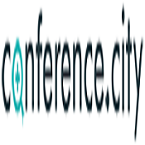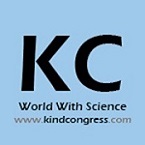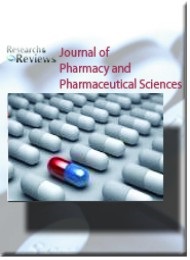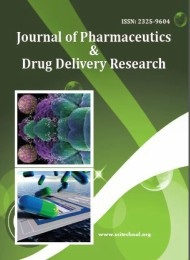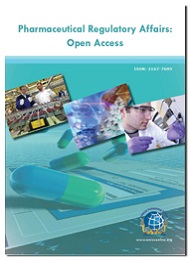Theme: Discover and Explore the Future of Pharma
Pharma Europe 2024

Welcome Message
by
Roy Krishna, Touro University, USA.
Dear Colleagues,
On behalf of Conference Series and the Organizing Committee it gives me immense pleasure to welcome you all to the Pharma Europe 2024 going to be held during July 25-26, 2024 in Frankfurt, Germany.
This year’s Pharma Europe 2024 addresses various Clinical Pharmacology, Biomedical Analysis and Pharmaceutical Nanotechnology.
Attendees have multiple programs and tracks to benefit from and we also welcome our young researchers and contributors. No doubt this gathering is indeed a melting pot for global researchers, academicians and scientists.
Coming to venue; Frankfurt is the largest city in Germany, brims with activity day and night. We hope you get to enjoy the countless activities and gastronomic scenes.
We hope to have the opportunity to explore the sights, unparalleled history and cuisine of this cosmopolitan capital.
Roy Krishna, PhD, FCP.
Professor-Pharmacology,
College of Osteopathic Medicine,
Touro University, Nevada,
USA.
You are cordially invited to join the "34th Annual European Pharma Congress", the most anticipated pharmaceutical event in the world, which is scheduled to take place in Frankfurt, Germany, from July 25-26, 2024. The main theme of the conference is “Discover and Explore the Future of Pharma”.
Pharma Europe 2024 is the best venue for discussing themes of shared interest in the field of pharma among academics, researchers, students, members of esteemed societies and institutes, as well as professionals from academia and the pharma industries. Over the span of two days, the extraordinary line-up of plenary speakers, keynote speakers, and other attendees at Pharma Europe 2024 will permit academics from all over the world to exhibit their research to leading international experts.
Importance:
- Meet the Pioneers in the Healthcare and Pharmaceutical Industries.
- Evidence-based approaches and translational research ought to be widely disseminated.
- Investigate Future Business Possibilities
- Get the most recent information from academic and business experts who are difficult to reach.
- Get your products and services out there.
- Make new connections with your coworkers.
- The case study will provide real-world examples and shared experiences
The International Pharma Europe 2024 Conference will discuss an array of Pharmaceutical Sciences, Pharmaceutical Chemistry, Drug Regulations, Pharmaceutical Formulations, Pharmaceutical Nanotechnology, Drug Delivery System, Pharmaceutics, Pharmaceutical Engineering, Pharmaceutical Microbiology, Pharma Companies, Clinical Pharmacy, Industrial Pharmacy, Pharmaceutical Biotechnology, Pharmacy Development Services, Pharmacognosy, Pharmacological Sciences and Bioinformatics.
Target Audience:
- Pharmaceutics experts, researchers, and scientists
- Pharma industries
- Directors/Managers/CEOs
- Pharmaceutical Students (Graduates and Post-graduates)
- Pharmaceutical Professors and Faculty
- Pharmaceutical Nursing & Midwifery Associations
- Pharmaceutics Associations and Societies
- Pharmaceutical Business Entrepreneurs
- Pharmaceutical Training Institutes
- Pharmaceutics Equipment designing companies
- Pharma Devices Software Developer Companies
- Pharmaceutical Companies
- R&D Labs, Pharmacists, and Influencers
Mode of Participations:
- Oral presentation
- Poster presentation
- Delegate
- Video Presentation
- E-Poster Presentation
- Workshop presentation
- Virtual presentation
Why to attend?
Pharma Europe 2024 provides a platform to gain valuable knowledge and insights into the latest advancements, research, and best practices. They bring together experts and thought leaders who share their expertise and perspectives, keeping you up to date with the cutting-edge developments. Secondly, conferences provide excellent networking opportunities, allowing you to connect with peers, potential collaborators, and mentors. Building relationships can lead to partnerships and career growth. Additionally, conferences contribute to professional development by offering workshops and seminars to enhance specific skills. They also shed light on industry trends, challenges, and regulatory updates, helping you make informed decisions. Collaboration and partnership opportunities are abundant at conferences, fostering innovation and driving impact in the industry. Lastly, conferences inspire and motivate attendees by showcasing success stories and providing fresh insights. Overall, attending a pharmaceutical conference is a valuable investment in professional growth, knowledge, networking, and inspiration.
Track 1: Pharmaceutical Sciences
The Pharmaceutical sciences combine broad range of scientific disciplines that are critical to the discovery and development of new drugs and therapies. Pharmaceutical Sciences is a dynamic and interdisciplinary field that aims to integrate fundamental principles of physical and organic chemistry, engineering, biochemistry, and biology to understand how to optimize delivery of drugs to the body and translate this integrated understanding into new and improved therapies against human diseases.
Related Societies: American Society of Pharmacognosy (ASP), Phytochemical Society of North America (PSNA), The Herb Society of America, American Herbal Products Association (AHPA) Phytochemical Society of Europe (PSE), Society for Medicinal Plant and Natural Product Research,
Track 2: Pharmaceutical Chemistry
Pharmaceutical chemistry is the study of drugs, and it involves drug development. This includes drug discovery, delivery, absorption, metabolism, and more. There are elements of biomedical analysis, pharmacology, pharmacokinetics, and pharmacodynamics. Pharmaceutical chemistry work is usually done in a lab setting. The chemical industry is one of the world’s largest branches and has significant influence on many other industries. Total global chemical shipments are worth an enormous five billion U.S. dollars.
Related Societies: European Herbal and Traditional Medicines Association (EHTPA) The Asian Society of Pharmacognosy (ASP), Society of Pharmacognosy, Malaysian Natural Product Society (MNPS), The Japanese Society of Pharmacognosy, Australian Society of Plant Scientists
Track 3: Drug Regulations
Drugs and Regulations are very important in aspects of Pharmaceutical sciences where it deals with Drug safety, Cost effectiveness, Drug rediscovery, Pharmaceutical services, Role of pharmacists, Radio Pharmaceuticals and Multiple drug use etc. The regulation of drugs varies by jurisdiction. In some countries, such as the United States, they are regulated at the national level by a single agency. In other jurisdictions they are regulated at the state level or at both state and national levels by various bodies, as is the case in Australia.
Related Societies: American Society of Pharmacognosy (ASP), Phytochemical Society of North America (PSNA), The Herb Society of America, American Herbal Products Association (AHPA) Phytochemical Society of Europe (PSE), Society for Medicinal Plant and Natural Product Research
Track 4: Pharmaceutical Formulations
Pharmaceutical formulations, in pharmaceutics, are the process in which different chemical substances, including the active drug, are combined to produce a final medicinal product. The word formulation is often used in a way that includes dosage form. Formulation studies involve developing a preparation of the drug which is both stable and acceptable to the patient. For orally taken drugs, this usually involves incorporating the drug into a tablet or a capsule.
Related Societies: European Herbal and Traditional Medicines Association (EHTPA) The Asian Society of Pharmacognosy (ASP), Society of Pharmacognosy, Malaysian Natural Product Society (MNPS), The Japanese Society of Pharmacognosy, Australian Society of Plant Scientists
Track 5: Pharmaceutical Nanotechnology
Molecular manufacturing is a branch of engineering that deals with the design and manufacture of extremely small electronic circuits and mechanical devices built at the molecular level of matter. Nanotechnology is also being applied to or developed for application to a variety of industrial and purification processes. Purification and environmental clean-up applications include the desalination of water, water filtration, wastewater treatment, groundwater treatment, and other Nano remediation.
Related Societies: American Society of Pharmacognosy (ASP), Phytochemical Society of North America (PSNA), The Herb Society of America, American Herbal Products Association (AHPA) Phytochemical Society of Europe (PSE), Society for Medicinal Plant and Natural Product Research
Track 6: Drug Delivery Systems
The method by which a drug is delivered can have a significant effect on its efficacy. Some drugs have an optimum concentration range within which maximum benefit is derived, and concentrations above or below this range can be toxic or produce no therapeutic benefit at all. On the other hand, the very slow progress in the efficacy of the treatment of severe diseases, has suggested a growing need for a multidisciplinary approach to the delivery of therapeutics to targets in tissues.
Related Societies: European Herbal and Traditional Medicines Association (EHTPA), The Asian Society of Pharmacognosy (ASP), Society of Pharmacognosy, Malaysian Natural Product Society (MNPS), The Japanese Society of Pharmacognosy, Australian Society of Plant Scientists
Track 7: Pharmaceutics
Pharmaceutics plays an important role in drug discovery like drug disposition, Innovations in clinical development, Pharmaceutical technology, Pharmaceutics and drug delivery, Drug design, Targeted drug, gene delivery, Sustained drug delivery system, Routes of administration, Fundamental drug development.
Related Societies: American Society of Pharmacognosy (ASP), Phytochemical Society of North America (PSNA), The Herb Society of America, American Herbal Products Association (AHPA) Phytochemical Society of Europe (PSE), Society for Medicinal Plant and Natural Product Research
Track 8: Pharmaceutical Engineering
Pharmaceutical engineering is a branch of engineering focused on discovering, formulating, and manufacturing medication, as well as analytical and quality control processes. It utilizes the fields of chemical engineering, biomedical engineering, and Pharmaceutical sciences.
Related Societies: European Herbal and Traditional Medicines Association (EHTPA) The Asian Society of Pharmacognosy (ASP), Society of Pharmacognosy, Malaysian Natural Product Society (MNPS), The Japanese Society of Pharmacognosy, Australian Society of Plant Scientists
Track 9: Pharmaceutical Microbiology
Pharmaceutical Microbiology is involves in the study of microorganisms associated with the manufacture of pharmaceuticals e.g. minimizing the number of microorganisms and is a specialist area of microbiology and one concerned with the use of microorganisms in pharmaceutical development and with maintaining contamination control.
Related Societies: American Society of Pharmacognosy (ASP), Phytochemical Society of North America (PSNA), The Herb Society of America, American Herbal Products Association (AHPA) Phytochemical Society of Europe (PSE), Society for Medicinal Plant and Natural Product Research
Track 10: Pharma Companies
Pharma Companies in Europe - Kowa Pharmaceutical, Aegerion Pharmaceuticals Ltd, Kent Pharmaceuticals, Alan Pharmaceuticals, Alliance Pharmaceutical Limited, Pharmaceutical Companies are knowledge driven industry and is heavily dependent on Research and Development for new products and growth. However, basic research discovering of new molecules is a time consuming and expensive process and is thus, dominated by large global multinationals.
Related Societies: European Herbal and Traditional Medicines Association (EHTPA) The Asian Society of Pharmacognosy (ASP), Society of Pharmacognosy, Malaysian Natural Product Society (MNPS), The Japanese Society of Pharmacognosy, Australian Society of Plant Scientists
Track 11: Clinical Pharmacy
Clinical pharmacy is the branch of pharmacy in which clinical pharmacists provide direct patient care that optimizes the use of medication and promotes health, wellness, and disease prevention. The concept of Clinical Pharmacy evolved after the significant increase in number of pharmaceuticals in the market and the increasing potential of drug interactions.
Related Societies: American Society of Pharmacognosy (ASP), Phytochemical Society of North America (PSNA), The Herb Society of America, American Herbal Products Association (AHPA) Phytochemical Society of Europe (PSE), Society for Medicinal Plant and Natural Product Research
Track 12: Industrial Pharmacy
Industrial Pharmacy also plays a crucial role in any drug discovery. To any novel drug discovery the industrial approach is very important to get massive commercial application. Few things which have to be considered by industries to provide a safe and cost affective medicine to the patients like Supply chain, Waste management, Product management, Post- marketing surveillance, Good manufacturing practices and Marketing.
Related Societies: European Herbal and Traditional Medicines Association (EHTPA) The Asian Society of Pharmacognosy (ASP), Society of Pharmacognosy, Malaysian Natural Product Society (MNPS), The Japanese Society of Pharmacognosy, Australian Society of Plant Scientists
Track 13: Pharmaceutical Biotechnology
Pharmaceutical biotechnology is a relatively new and growing field in which the principles of biotechnology are applied to the development of drugs. A majority of therapeutic drugs in the current market are bio formulations, such as antibodies, nucleic acid products and vaccines.
Related Societies: American Society of Pharmacognosy (ASP), Phytochemical Society of North America (PSNA), The Herb Society of America, American Herbal Products Association (AHPA) Phytochemical Society of Europe (PSE), Society for Medicinal Plant and Natural Product Research
Track 14: Pharmacy Development Services
Pharmacy Development Services offers independent pharmacy owners profit-generating strategies in operations, business development, data analytics, and many more. The Pharma consultants work with organizations of all sizes including academic institutes, start-up companies, and established organizations. The services aim to increase the patient’s knowledge of their medication and improve their adherence to the regimen.
Related Societies: European Herbal and Traditional Medicines Association (EHTPA) The Asian Society of Pharmacognosy (ASP), Society of Pharmacognosy, Malaysian Natural Product Society (MNPS), The Japanese Society of Pharmacognosy, Australian Society of Plant Scientists
Track 15: Pharmacognosy
Pharmacognosy is the study of drugs derived from Plants and herbs. The Drugs from natural sources can be obtained by the help of following methods like Computational chemistry, Medicinal chemistry, Molecular drug design, Protein structure prediction, molecular simulation, and exploratory development and Biochemistry. Global sales of plant products was totally estimated us $60 billion in 2002 and is expected to get higher at 6.4 % average growth rate.
Related Societies: American Society of Pharmacognosy (ASP), Phytochemical Society of North America (PSNA), The Herb Society of America, American Herbal Products Association (AHPA) Phytochemical Society of Europe (PSE), Society for Medicinal Plant and Natural Product Research
Track 16: Pharmacological Sciences
Pharmacology is the study of the biochemical and physiological effects of active ingredient on humans. The various aspects of pharmacological sciences are Behavioral pharmacology, Medical Pharmacology, Cardiovascular pharmacology, Endocrine pharmacology, Clinical pharmacology, Urogenital pharmacology, Pharmacokinetics, Neuropharmacology, Immune pharmacology, Cognitive models of the brain, Neural models of memory, Functional modes of the brain, Neuropsychology, Cognitive neuroscience and neurosystem.
Related Societies: European Herbal and Traditional Medicines Association (EHTPA) The Asian Society of Pharmacognosy (ASP), Society of Pharmacognosy, Malaysian Natural Product Society (MNPS), The Japanese Society of Pharmacognosy, Australian Society of Plant Scientists
Track 17: Bioinformatics
Bioinformatics has emerged out of the inputs of specialists from several different areas such as biology, biochemistry, biophysics, molecular biology, and biostatistics and computer science. Specially designed algorithms and organized computer databases are at the core of all bioinformatics operations. Algorithms, that are necessarily complex, make voluminous data easy to handle for defined purposes, in an amazingly short time, a process that is humanly impossible.
Related Societies: American Society of Pharmacognosy (ASP), Phytochemical Society of North America (PSNA), The Herb Society of America, American Herbal Products Association (AHPA) Phytochemical Society of Europe (PSE), Society for Medicinal Plant and Natural Product Research
Track 18: Real-World Evidence in Clinical Trials
Real-world evidence in clinical trials supplements traditional clinical data with insights from real-world patient experiences. It offers a broader perspective on treatment effectiveness, safety, and outcomes. Utilizing electronic health records, patient registries, and wearables, it enhances understanding and decision-making, ultimately improving patient care and informing healthcare policies.
Related Societies: European Herbal and Traditional Medicines Association (EHTPA) The Asian Society of Pharmacognosy (ASP), Society of Pharmacognosy, Malaysian Natural Product Society (MNPS), The Japanese Society of Pharmacognosy, Australian Society of Plant Scientists
Track 19: Clinical and Medical Case Reports
Bioinformatics has emerged out of the inputs of specialists from several different areas such as biology, biochemistry, biophysics, molecular biology, and biostatistics and computer science. Specially designed algorithms and organized computer databases are at the core of all bioinformatics operations. Algorithms, that are necessarily complex, make voluminous data easy to handle for defined purposes, in an amazingly short time, a process that is humanly impossible.
Related Societies: American Society of Pharmacognosy (ASP), Phytochemical Society of North America (PSNA), The Herb Society of America, American Herbal Products Association (AHPA) Phytochemical Society of Europe (PSE), Society for Medicinal Plant and Natural Product Research.
Track 20: Nanotechnology in Drug Delivery
Nanotechnology, a revolutionary field at the intersection of science, engineering, and medicine, has paved the way for groundbreaking innovations in drug delivery. In the realm of healthcare, nanotechnology has emerged as a powerful tool, enabling precise and targeted drug delivery systems that have the potential to revolutionize the treatment of various diseases.Miniaturized carriers, such as liposomes, nanoparticles, and dendrimers, allow for precise targeting, improving drug bioavailability and reducing side effects.
Related Societies: European Herbal and Traditional Medicines Association (EHTPA) The Asian Society of Pharmacognosy (ASP), Society of Pharmacognosy, Malaysian Natural Product Society (MNPS), The Japanese Society of Pharmacognosy, Australian Society of Plant Scientists
Global pharmaceutical market is expected to grow in the upcoming years despite recent slowdown in key markets across the globe. The reasons are simple: aging and growing population, rising income levels, and emerging medical conditions and emergence of new diseases.
Global pharmaceuticals market is expected to be worth USD 1.57 trillion by 2023.
As per NAVADHI Market Research, the global pharmaceutical industries will us worth USD 1.57 trillion by 2023. The growth in this market is predicted on the basis of various factors like market drivers, current and upcoming trends, current growth pattern, and market challenges.
North America is expected to retain its leading position in the global pharmaceuticals market with market share of 45.33% in 2023 improving on its market share compared to 2017. Europe on the contrary is expected to see a decline in its market share compared to 2017 and be worth 20.24% of global pharma industry in 2023. Asia Pacific pharmaceuticals market is expected to retain its second position with a market share of 24.07% in 2023. Latin America and Middle East and Africa (MEA) are expected to retain 7.53% and 2.96% market share of global pharmaceuticals market in 2023.
This growth is fuelled by the growing and ageing population in key markets. As per World Population Prospects by United Nations, the worldwide population is likely to cross 9.3 billion by 2050 and around 21% of this population is expected to be aged 60 and above. Apart from ageing and rising population the improvements in purchasing power and access to quality healthcare and pharmaceuticals to poor and middle-class families worldwide also is driving the growth of global pharma industry. Another aspect which is leading this growth is raising focus of pharmaceuticals companies to tap the rare and specialty diseases market. Innovations in advanced biologics, nucleic acid therapeutics, cell therapies and bioelectronics & implantables has attracted investments in the industry by even non-pharma companies like Facebook, Qualcomm etc. which is also driving the global pharmaceuticals industry growth.
On the other hand, adoption of cost control policies along with tightening of rules by governments in key markets are expected to impact the growth prospect of the global pharmaceuticals industry. Pharmaceuticals companies are forced to reduce their research and development (R&D) spending due to slowdown of growth in last few years which is also expected to hamper growth of the global pharma market as new drugs revenue form large part of pharma firm’s revenue due to exclusivity of the drug. Apart from these generics pharma market is facing decreasing return on investment due to price erosion in key markets which is forcing many firms to look for other avenues and markets to sustain growth.
Global Pharmaceuticals Industry Analysis and Trends 2023 Market Research Report Coverage
Global Pharmaceuticals Industry Analysis and Trends 2023 report covers growth forecasts for 39 countries along with 5 major geographic regions.
- In the Asia Pacific region growth forecasts are provided for Australia, China, India, Japan and South Korea.
- In the Europe region growth forecasts are provided for France, Germany, Italy, Russia, Spain and United Kingdom.
- In the Middle East and Africa (MEA) region growth forecasts are provided for Algeria, Bahrain, Cote d'Ivoire (Ivory Coast), Egypt, Jordan, Kenya, Kuwait, Lebanon, Morocco, Saudi Arabia,
- Senegal, South Africa, Tunisia, Turkey and UAE.
- In the Latin America region growth forecasts are provided for Bolivia, Brazil, Costa Rica, Chile, Colombia, Dominican Republic, Ecuador, Mexico, Paraguay, Peru and Uruguay.
- In the North America region growth forecasts are provided for Canada and USA.
Major Pharmaceutical Companies:
- Pfizer Inc.
- Novartis International AG
- Johnson & Johnson
- GlaxoSmithKline PLC
- Roche Holding AG
- Merck & Co. Inc.
- Sanofi S.A.
- AbbVie Inc.
- Gilead Sciences Inc.
- Bayer AG
Conference Highlights
- Pharmaceutical Sciences
- Pharmaceutical Chemistry
- Drug Regulations
- Pharmaceutical Formulations
- Pharmaceutical Nanotechnology
- Drug Delivery Systems
- Pharmaceutics
- Pharmaceutical Engineering
- Pharmaceutical Microbiology
- Pharma Companies
- Clinical Pharmacy
- Industrial Pharmacy
- Pharmaceutical Biotechnology
- Pharmacy Development Services
- Pharmacognosy
- Pharmacological Sciences
- Bioinformatics
- Real-World Evidence in Clinical Trials
- Clinical and Medical Case Reports
- Nanotechnology in Drug Delivery
To share your views and research, please click here to register for the Conference.
To Collaborate Scientific Professionals around the World
| Conference Date | July 25-26, 2024 | ||
| Sponsors & Exhibitors |
|
||
| Speaker Opportunity Closed | Day 1 | ||
| Poster Opportunity Closed | Click Here to View | ||
Useful Links
Special Issues
All accepted abstracts will be published in respective Our International Journals.
- Journal of Pharmaceutics & Drug Delivery Research
- Pharmaceutical Regulatory Affairs: Open Access
- Research & Reviews in Pharmacy and Pharmaceutical Sciences
Abstracts will be provided with Digital Object Identifier by



















